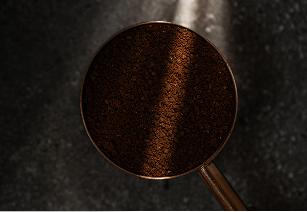
Recent findings from a large, well-conducted Swiss study suggest that coffee does more than just wake you up — it may protect your brain and support long-term cognition. For anyone wondering “does coffee improve memory or focus?”, the science is beginning to provide clear answers. Here’s a deeper dive into what the study discovered and what it means for your daily cup.
What the Study Found
Population & Context: Researchers studied over 2,400 people in Switzerland, average age ~73, all with atrial fibrillation (AFib) — a heart rhythm condition that raises the risk of stroke and dementia. This makes it an ideal group to explore coffee and cognition, since they are at higher risk for decline.
Coffee Intake Categories: Participants reported their daily coffee intake, grouped into ranges: less than 1 cup/day, 1 cup/day, 2–3 cups/day, 4–5 cups/day, and more than 5 cups/day.
Cognitive Measures: A full set of neurocognitive tests (Montreal Cognitive Assessment, Trail-Making, Digit Symbol Substitution, semantic fluency, etc.) measured memory, processing speed, attention, and executive function — answering directly: does coffee improve memory and brainpower?
Inflammation Markers: They also tested blood levels of hs-CRP and IL-6 — systemic inflammation markers tied to brain aging and vascular health.
Results That Matter
Dose-dependent association: More coffee = better cognitive performance. Even going from <1 cup to 1–2 cups/day showed measurable brain benefits. The highest group (>5 cups/day) scored best overall.
Younger “Cognitive Age”: Those drinking >5 cups/day performed as if their brains were 6.7 years younger than low-intake participants. That’s a strong marker of coffee’s brain benefits.
Lower Inflammation: Higher intake correlated with reduced IL-6 and downward trends in hs-CRP, pointing toward coffee’s role in inflammation and brain health.
Robust results: The link held true even after adjusting for confounders like age, BMI, diabetes, medications, and education — strengthening the case that coffee itself is the driver.
Coffee and Brain Health: Practical Takeaways
The Swiss study suggests that coffee’s impact on cognition comes from more than just caffeine’s alertness vs brain power. Anti-inflammatory effects, improved vascular health, and antioxidant compounds may all contribute. Here are some practical questions people ask — and how the evidence stacks up:
How much coffee per day for brain health?
Even one cup daily showed benefit, but 2–5 cups/day produced the clearest improvements in memory and executive function.
Coffee vs caffeine: are they the same?
Not exactly. Pure caffeine sharpens alertness, but coffee contains hundreds of bioactive compounds that appear to support memory and protect against cognitive decline better than caffeine alone.
Coffee side effects on brain health?
Too much coffee can interfere with sleep, raise anxiety, or cause jitters in sensitive people — which can backfire on cognition. The benefits appear strongest with moderate intake.
Coffee timing — morning or before tasks?
Morning coffee supports daily rhythm without disturbing sleep. Strategically timing a cup before mentally demanding tasks may maximize focus and productivity.
Coffee reduces cognitive decline and Alzheimer’s risk?
Long-term observational studies show associations between regular coffee intake, slower cognitive decline, and lower amyloid buildup in the brain — markers tied to Alzheimer’s risk.
Coffee, inflammation, and the brain
By lowering inflammatory markers like IL-6, coffee may help maintain vascular and brain health, reducing one of the silent drivers of cognitive decline.
The Bottom Line
The evidence shows that coffee supports a sharper, younger mind. Regular drinkers performed as if their brains were nearly seven years younger, and even one cup a day made a measurable difference. The benefits come from more than caffeine — antioxidants and anti-inflammatory effects play a major role in coffee’s brain benefits.
Danger Coffee takes this to the next level. Specialty grade beans are lab-tested, mold-free, and packed with over 50 trace minerals. That means you get the cognitive benefits science supports — without hidden toxins — plus added minerals your body and brain rely on.
Source: https://www.ahajournals.org/doi/10.1161/JAHA.124.034365





